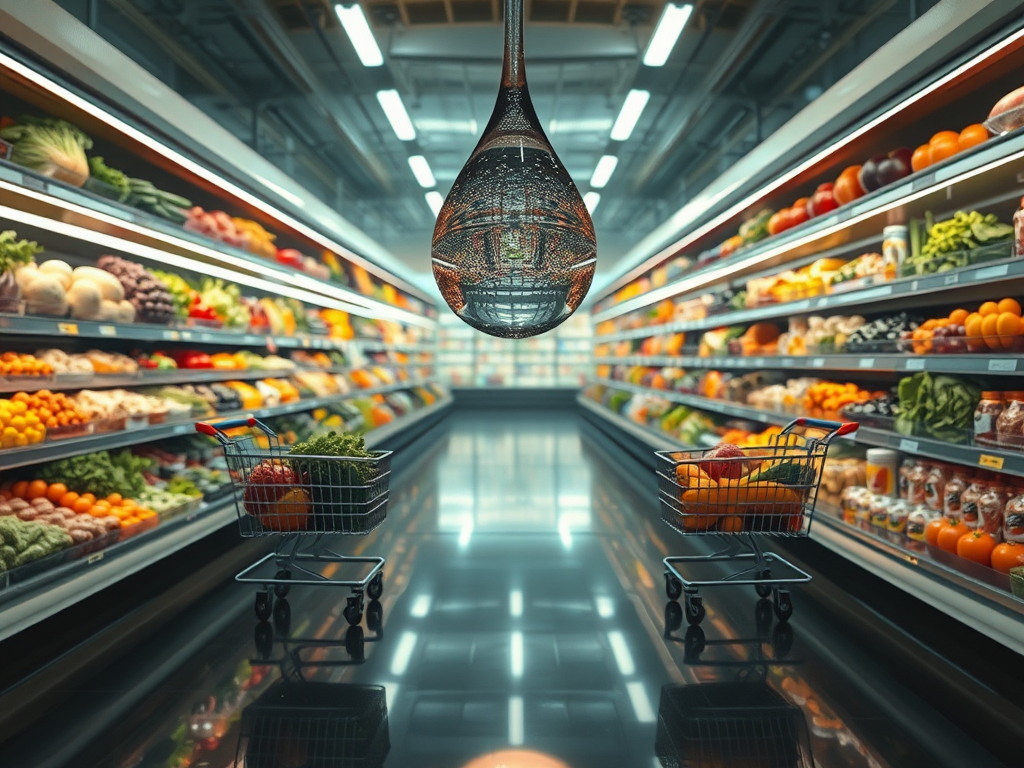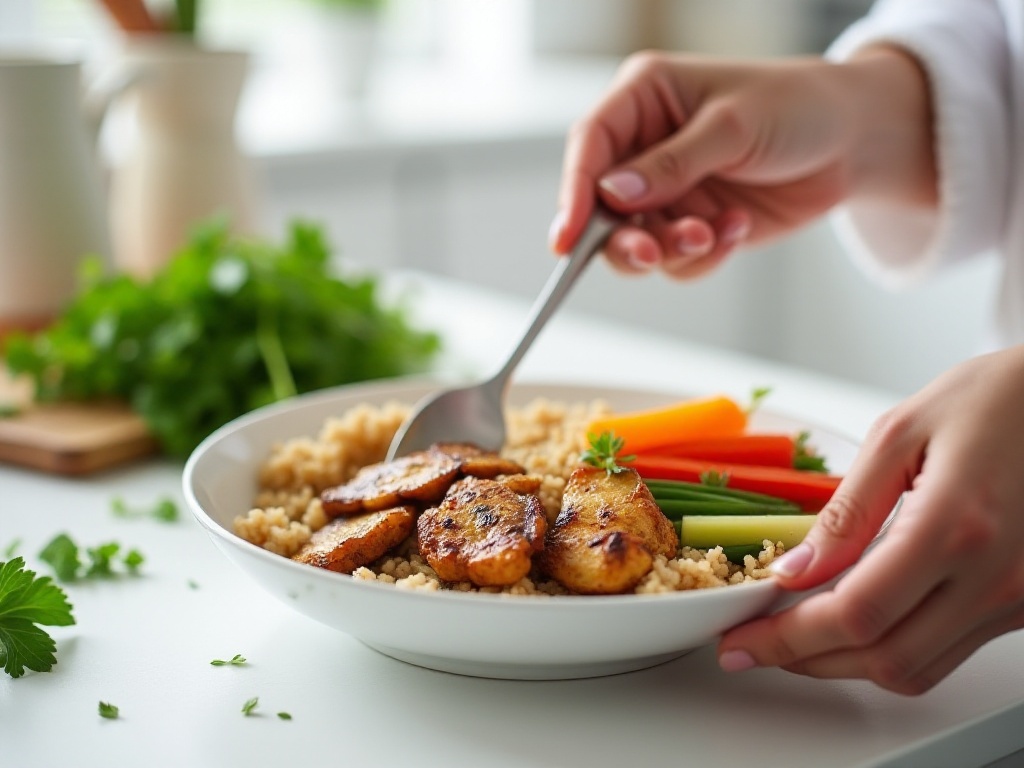Getting Started
Young people today face significant life pressures, working 996 schedules, dealing with various social obligations after work, and often feeling like there's no time to eat properly. Whenever I see friends posting about healthy living on social media, I want to live healthily too, but can never stick to it. As someone who broke free from takeout dependency, I totally understand this feeling.
I was shocked by a recent statistic - over 78% of people can't maintain healthy eating habits for even a month. Think about it, who hasn't made empty promises? On Monday, you say you'll start losing weight, but end up working until 11 PM and ordering fried chicken because you're starving. On Tuesday, you plan to eat light, but there's a colleague's birthday dinner - you can't just drink water, right? And just like that, one promise falls, then another...
Actually, it's often not that we lack determination, but that we start with unrealistic expectations. For instance, I initially made an extremely long list of rules: must eat completely vegetarian every day, no snacks at all, absolutely no food after 6 PM... The result was predictable - I gave up after three days, and after breaking the rules, I completely gave up and went overboard.
Supermarket Strategy
The supermarket is basically my "rational thinking destroyer." When I first started improving my diet, every supermarket trip was a disaster: I'd go in for fruits and chicken breast, but end up with a cart full of chips, chocolate, and ice cream... Later I realized it was because I always went grocery shopping on an empty stomach!
Research shows that shopping while hungry is a true test of willpower. Can you believe it? The likelihood of buying high-calorie foods increases by 60% when hungry! Looking back, every time I went to the supermarket hungry, everything looked delicious, and I wanted to buy the entire snack section.
Now I do my homework in advance. I spend half an hour every weekend planning the next week's meals and making a detailed shopping list. This not only prevents buying excess ingredients but also saves money. I calculated that just by planning this way, I save at least 500 yuan each month! That's a weekend's worth of bubble tea money!
I've also discovered techniques for grocery shopping. For example, it's best to choose seasonal fresh vegetables - they're not only cheaper but more nutritious. The same goes for fruits; off-season fruits are often expensive and don't taste as good. I now check the supermarket's promotions and sometimes find great deals.
When buying meat, I pay special attention to expiration dates. I used to buy discounted meat close to expiration, but often couldn't finish it in time. Now I buy appropriate amounts of meat according to my plan, ensuring freshness while avoiding waste.

Kitchen Revolution
Honestly, my kitchen transformation was revolutionary. Previously, my kitchen was just a snack storage room - the cabinets were full of various puffed snacks, cookies, and candy... Now I've hidden these high-calorie foods in invisible corners, replacing them with healthy foods like fruits, nuts, and whole grains.
Every weekend, I spend two hours on food prep, which has become my proudest habit. I portion and package chicken breast, cook brown rice and quinoa, and prepare boiled broccoli and carrot sticks. Though it's a bit tiring, knowing I can quickly prepare dinner after work makes it totally worth it.
I bought myself a vacuum sealer to package prepared ingredients. This not only keeps ingredients fresh but extends their shelf life. For example, I portion chicken breast into 100g packages, vacuum seal them, and store them in the fridge - just heat them up when needed.
Kitchen organization is also an art. I keep all seasonings on a rotating rack, frequently used ones on the outer ring, less used ones inside. This makes cooking much more efficient as I don't have to search everywhere.
I'd especially like to share a recent trick I discovered: creating an "expiring soon" section in the fridge for ingredients that are about to expire. This prevents waste from forgetting about ingredients in some corner.

Dining Techniques
When it comes to portion control, I have plenty to say. I used to think dieting meant starving myself, resulting in either binge eating or malnutrition. Then I learned about the plate method, which was a lifesaver! It involves dividing your plate into quarters: half for various vegetables (preferably dark vegetables like broccoli and spinach), a quarter for whole grains (brown rice, oats, quinoa), and the remaining quarter for quality protein (chicken breast, fish, soy products).
I especially enjoy eating with friends, not just for the companionship but because it helps control eating speed. Research shows that eating speed naturally slows down by 20% when dining with others. Indeed, when eating alone, I tend to wolf down my food, especially during short work lunch breaks, often scrolling through my phone while stuffing food in my mouth, barely tasting what I'm eating. But dining with friends is different - chatting while eating naturally slows you down, allowing you to better appreciate the food.
I've also developed a proper eating order: soup or salad first, then main course and meat, and finally fruit. This gives the stomach time to adjust and creates a feeling of fullness earlier, preventing overeating.
I've also found that using smaller dishes helps. With large bowls and plates, I used to feel like small portions weren't enough, but with smaller dishes, the same amount looks more satisfying, making it psychologically easier to feel content.

Nutritional Balance
Dietary fiber is my expertise! Adults need 25-30 grams of fiber daily, but most people consume less than half that. My current solution is: adding chia seeds and flaxseeds to oatmeal for breakfast, and eating more legumes and whole grains for lunch and dinner. For instance, I particularly enjoy making salads with black beans and chickpeas, which provide both satiety and protein along with fiber.
Protein choices are also important. I now focus on chicken breast and fish, which provide 20-25 grams of protein per 100 grams, with only half the calories of regular meat. Chicken breast is especially versatile: it can be fried, baked, made into soup, or even salad. My favorite is marinating it with black pepper before frying - crispy outside, tender inside, not dry at all.
Speaking of nutritional balance, vitamins and minerals are crucial. I now eat a rainbow every day, ensuring I consume vegetables and fruits of different colors. Red tomatoes are rich in lycopene, orange carrots are full of carotene, green spinach is rich in folic acid and iron... each color represents different nutrients.
Oh, and one important discovery: moderate healthy fats are crucial for the body. I eat appropriate amounts of foods rich in unsaturated fatty acids like nuts, avocados, and olive oil. These good fats not only benefit cardiovascular health but help the body absorb fat-soluble vitamins.

Beverage Choices
Regarding beverages, I've successfully quit sugary drinks as a former "cola addict"! Do you know how much sugar is in one bottle of cola? It equals 8 sugar cubes! Just thinking about it is scary. Now I make my own fruit tea, steeping lemon slices, citrus slices, and mint leaves in water - it's both refreshing and healthy.
I love pairing different fruits with teas: in summer, lemon slices with green tea are especially refreshing; in winter, ginger slices with black tea provide wonderful warmth. Plus, making my own drinks allows me to control the sweetness, eliminating concerns about excessive sugar intake.
Now I drink at least 2 liters of water daily, starting with a large glass of warm water first thing in the morning, and keeping a large water bottle on my desk for regular sips. Drinking more water not only helps the body detoxify but also greatly improves skin condition. I used to have dry skin, but now after drinking enough water, my skin has become much more hydrated.

Conclusion and Future Outlook
Through this period of practice, I've deeply realized that healthy eating isn't about complete abstinence, but about making wiser choices. For example, I still eat snacks, but I use small plates instead of holding an entire bag of chips at the computer. When dining out with friends on weekends, I don't overly restrict myself but pay attention to portions, eating more vegetables and less meat.
Changing dietary habits does take time, but with gradual progress, everyone can find their suitable healthy eating approach. After all, in this competitive era, a healthy body is our most important competitive advantage, right?
I now truly enjoy this healthy lifestyle, feeling more energetic and productive at work. Most importantly, I no longer worry about my weight! I hope my experience provides some inspiration, and I welcome you to share your healthy eating insights with me!
Related articles




